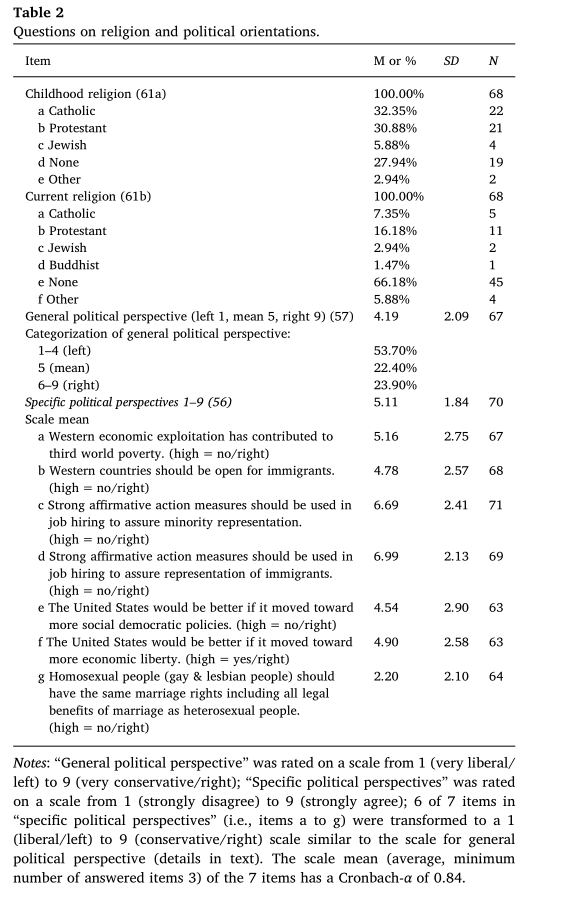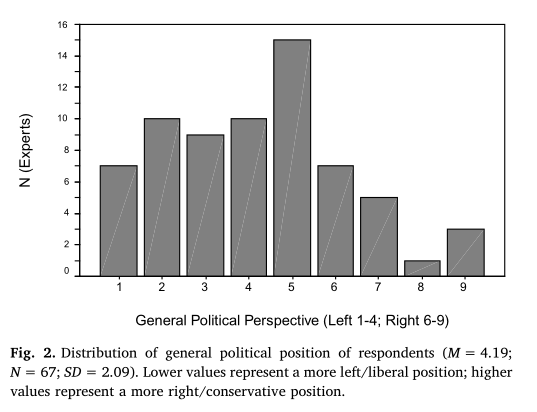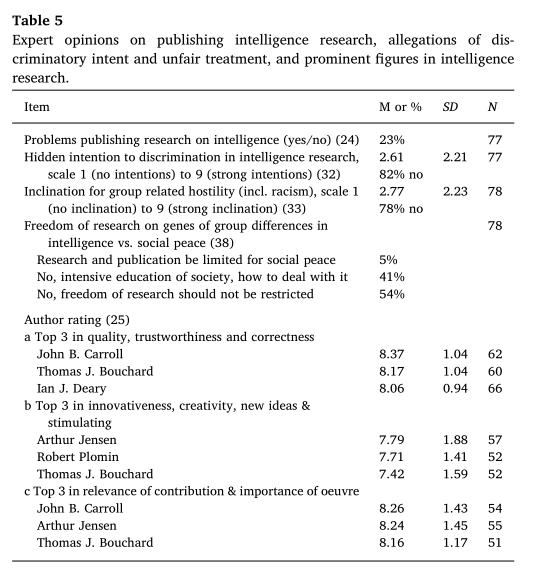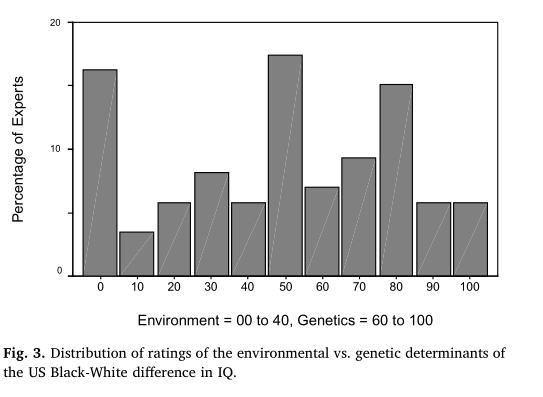Experts, intelligence, race http://www.unz.com/jthompson/experts-intelligence-race/">https://www.unz.com/jthompson...
Academia makes a tradition out of slowness: the last survey on this matter was in 1988. By this reckoning the next survey will be in 2052. No need to rush things.
Popular view:political orientation determines attitudes to scientific findings: find author’s politics, predict & discount their opinions. Or: author’s observations of life may determine their politics, find those experiences & discount their politics.
Respondents have a claim to expertise. Academic work better than the scholarly average, so they probably know their subject. They were somewhat Left inclined, and this had an impact on questions like the contribution genetics makes to black-white differences
Experts believe that research should be published, not suppressed to gain peace and quiet. They value the work of Carroll, Bouchard, Deary, Jensen and Plomin.
The claim that people hold a particular view about the genetics of intelligence merely because, say, they are old, conservative men is, by that token, refuted because the objection comes from, say, young, liberal women.
This line of argument gets nowhere, since it assumes that personal identity is all, that facts don’t matter, indeed, that there are no facts other than those created by persons with different attitudes (some reprehensible, some desirable).
On this argument, we cannot tell what can be seen through a telescope until we can see into the political minds of the astronomers. A contrary view is that better methods lead to better measures, shown to be so by lower errors and by reproducible results.
Have opinions about racial differences changed since 1988? In those 26 years there has been an increase in the willingness to ascribe intelligence differences to genetic causes.
You will see that there are some hardliners who believe that black/white differences are entirely environmental, and some (fewer) hardliners who who believe them to be entirely genetic in origin. There are peaks at 50% and 80%. The 50:50 judgment is a popular compromise.
The 80% figure is more interesting, because it was the percentage that Jensen (& Rushton) inclined towards in their 2005 review of the literature, or at least mentioned as being possible. Some researchers may regard this as a prediction.
Some progress: more experts willing to agree that genetics is involved in the intellectual differences between genetic groups. Extreme positions more often held by environmentalists than geneticists.
A good study which reveals important findings about contentious subjects. Done again: make it shorter, repeat key questions, encourage (anonymized) responses, publish quickly. Roll on 2052.

 Read on Twitter
Read on Twitter






